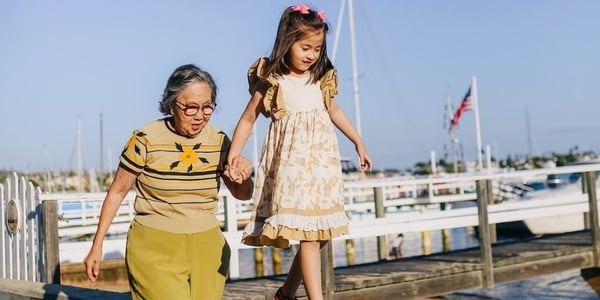Travel offers a chance for families to break free from the ordinary and embark on a shared...
The Benefits of Intergenerational Friendships
Intergenerational friendships also provide a sense of social connectedness and belonging. As people age, they may become more isolated, leading to loneliness and depression. Younger friends can offer a sense of companionship and support, helping to combat these negative emotions. Moreover, intergenerational friendships can help reduce ageism, creating a more inclusive and accepting community.
The benefits of intergenerational friendships extend beyond the individuals involved. When people of different generations come together, they can foster stronger connections between different age groups, leading to a more cohesive and inclusive society. In addition, younger generations can learn to appreciate the contributions and experiences of older adults, while older adults can develop greater empathy and understanding for the challenges facing younger generations.
Participating in intergenerational activities also has numerous benefits. For example, volunteering together can strengthen community bonds while also providing opportunities to learn from each other. Cooking or crafting activities can offer a fun and relaxed environment for people of different ages to share their skills and learn new ones. Interacting in these settings can help break down barriers and reduce age-based stereotypes.
Intergenerational activities also benefit younger generations by providing opportunities to develop empathy and respect for older adults. Many younger people may not have experience interacting with older adults, leading to negative stereotypes or misunderstandings. By participating in intergenerational activities, younger individuals can develop greater empathy and understanding for the experiences and challenges faced by older adults. This can help reduce age-based discrimination and promote greater inclusivity.
Furthermore, intergenerational relationships can help address some of the social challenges facing our aging population. As people live longer, there is a growing need for social support and care services. Building stronger intergenerational connections can create more opportunities for older adults to remain active and engaged in their communities, reducing the risk of social isolation and the associated adverse health outcomes.
Intergenerational relationships can also help combat age-based discrimination in the workplace. For example, older adults are often viewed as less productive or less valuable than younger employees. Building stronger connections between different age groups can help break down these stereotypes and promote greater inclusion in the workplace.
How to Find Intergenerational Friends
Older adults can seek out intergenerational friendships in a variety of ways. Here are some suggestions:
- Attend community events: Many communities offer events and activities that are open to people of all ages. Older adults can attend these events to meet people from different generations and build new friendships. Examples include festivals, farmers markets, and outdoor concerts.
- Join clubs or groups: Joining a club or group that focuses on a shared interest can be a great way to meet people of all ages. For example, a hiking or book club may attract members from different generations who share a common interest.
- Volunteer: Volunteering is a great way to meet people from all walks of life, including people of different ages. Older adults can volunteer at schools, community centers, or local non-profit organizations to meet younger volunteers and staff. Click here to discover more great volunteer opportunities!
- Take classes: Many community centers and schools offer classes on a variety of topics, from cooking to painting to language learning. By enrolling in a class, older adults can meet people of different ages with common interests.
- Use technology: Technology has made it easier than ever to connect with people of all ages. Social media platforms like Facebook and Twitter can help older adults connect with younger friends and family members. Additionally, there are online forums and groups focused on intergenerational friendships that can be a great resource. Click here to learn how to get started with a variety of social media platforms!
- Connect through family: Older adults can also seek out intergenerational friendships through their family members. Grandparents can spend time with their grandchildren and their friends, and parents can invite their children's friends over for dinner or a game night.
In summary, there are many ways for older adults to seek out intergenerational friendships, including attending community events, joining clubs or groups, volunteering, taking classes, using technology, and connecting through family. By building these connections, older adults can reap the many benefits of intergenerational friendships, including social connectedness, personal growth, and a sense of belonging.
Keep reading - Where Can I Make New Friends in Retirement?





